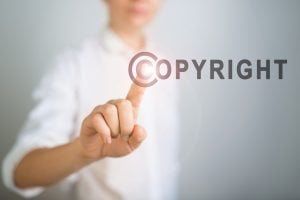Using Online Images Without Violating Copyright
FYI, just because something is online doesn’t mean it’s free to use or reuse.
 Since I began writing at ATL, I sometimes get an email inquiring about whether what someone wants to do infringes copyright, is a fair use, infringes patents, has had their patents infringed upon, or other requests for advice (side note: I’m not going to respond with legal advice). I appreciate that individuals want to know how and when they can use or reuse copyrighted works, while respecting copyright laws and one of the issues that most frequently finds its way into my inbox is about online images.
Since I began writing at ATL, I sometimes get an email inquiring about whether what someone wants to do infringes copyright, is a fair use, infringes patents, has had their patents infringed upon, or other requests for advice (side note: I’m not going to respond with legal advice). I appreciate that individuals want to know how and when they can use or reuse copyrighted works, while respecting copyright laws and one of the issues that most frequently finds its way into my inbox is about online images.
First, let’s be perfectly clear: just because something is online doesn’t mean it’s free to use or reuse. I’m not talking about linking to something or even about embedding a tweet. I’m talking about taking a picture you found online and publishing it on your blog, printing it on a t-shirt, or using it in a presentation. Leaving aside the issue of whether fair use might be applicable, since that’s a fact-dependent inquiry, how can you use photographs that appear online without violating copyright?
Remember, it’s not enough simply to provide attribution or acknowledge that you are not the creator of the particular image. Attribution is nice and may be ethical or a norm in our society, but it doesn’t provide a defense to copyright infringement. If the author of the photograph didn’t want you to use it, and you don’t have the right of fair use to back up your use, just because you provided attribution isn’t going to help you much.

Navigating Financial Success by Avoiding Common Pitfalls and Maximizing Firm Performance
Luckily, there are a number of ways to find photographs online that you can lawfully use.
A good place to start is any storehouse of public domain images, ones that the photographer has contributed to the public domain. Because they are in the pubic domain, you do not need to provide attribution and can use or remix the image without seeking permission. Unsplash, Pexels, Flickr’s Pubic Domain Group, Pixabay are just a few sites where you can check for free to use, no attribution required images. These sites include search tools, categories to browse, and other ways to explore the images. You can find stock photos, wildlife, architecture, landscapes, street photography, and many others on these sites. U.S. Government works — such as those taken by the State Department, for example — are not copyrightable and in the public domain. Personally, I love searching the NASA images database for pictures of stars and space, but I digress…
Still can’t find just the right image for your project? Try using a photograph with a license attached to it, allowing you abide by the terms of the license without seeking permission directly from the photographer. These are images where the photographer has already granted these rights in advance, setting the conditions for use or reuse. Creative Commons (CC) licenses are probably the most ubiquitous and well-known. I like using the search on the Creative Commons website, which actually searches a number of sites for images where photographers have applied a CC license (note, of course, the disclaimer that “You should always verify that the work is actually under a CC license by following the link.” I have come across a few that are not under a CC license so always double check!). The licenses attached to each photo differ, ranging from CC-0 (a public domain license), to CC-BY (in which you must provide attribution), to the most restrictive CC license offered, CC-BY-NC-ND (which requires attribution and prohibits commercial uses or derivatives, meaning you can’t remix or alter the image), as well as several other licenses in between. Sometimes, I’ll just go directly to Flickr, since most of the images I use are hosted there. Flickr allows you to filter your search for images, for example for ones that allow derivatives or commercial uses. You can also filter your search for U.S. Government works on Flickr. One note of caution: make sure that you’re using the correct filters for your particular use; the default search is for “any license,” the results of which include images where all rights are reserved.
Of course, if you find a photograph that you want to use where all rights are reserved (or where there is no CC license, so you can assume that all rights are reserved) and are certain you can’t find an adequate substitute, you still have another option: ask the photographer for permission.
Sponsored

The Business Case For AI At Your Law Firm


Legal AI: 3 Steps Law Firms Should Take Now

Early Adopters Of Legal AI Gaining Competitive Edge In Marketplace

The Business Case For AI At Your Law Firm

Today’s technology makes it easy to find great images online. The great news is that there are also numerous tools to find ones that can be used — including for reuse or commercial uses — while respecting copyright.
Krista L. Cox is a policy attorney who has spent her career working for non-profit organizations and associations. She has expertise in copyright, patent, and intellectual property enforcement law, as well as international trade. She currently works for a non-profit member association advocating for balanced copyright. You can reach her at kristay@gmail.com.
Sponsored

Navigating Financial Success by Avoiding Common Pitfalls and Maximizing Firm Performance








